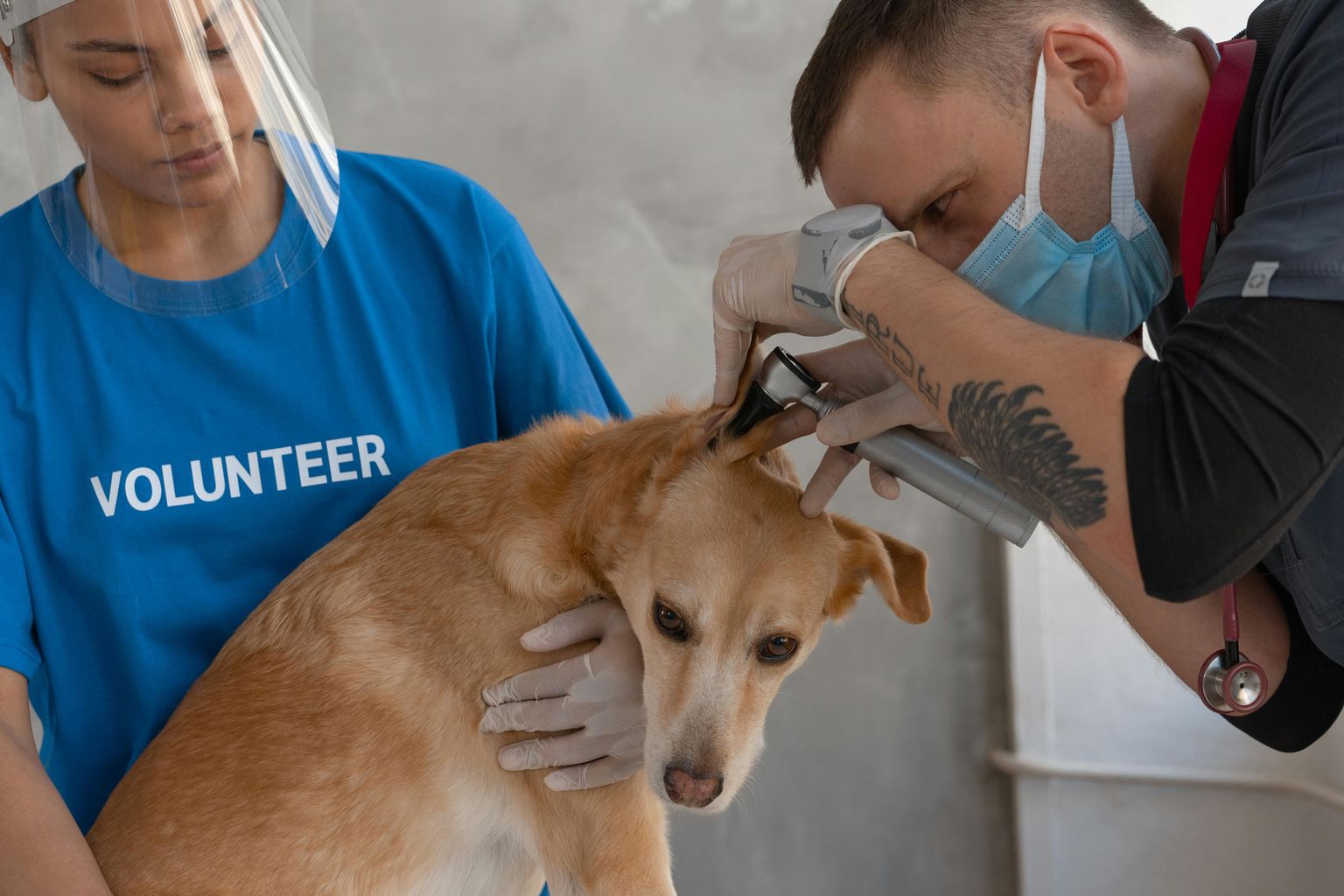As loving pet parents, we go to great lengths to ensure our furry companions are happy and healthy. From choosing the best food and toys to scheduling regular grooming sessions, we do it all. But one of the most crucial aspects of responsible pet ownership is routine veterinary care. Whether you're raising a boisterous puppy or caring for a senior cat, vet visits are essential at every stage of life.
In this detailed guide, we’ll walk you through everything you need to know about veterinary visits—from preparation to diagnosis—so you can confidently care for your dog or cat from snout to tail.
Why Routine Vet Visits Are Essential
Regular vet visits aren't just for when your pet is sick. They’re vital for preventive care, early diagnosis, and maintaining a record of your pet’s health history. Most vets recommend at least one wellness visit per year, but puppies, kittens, seniors, and pets with chronic conditions may require more frequent checkups.
Key Benefits of Routine Vet Visits:
- Early detection of diseases (e.g., diabetes, kidney issues, cancer)
- Vaccination updates and parasite prevention
- Dental exams and cleanings
- Behavioral assessments
- Weight management and nutrition advice
- Baseline diagnostic tests like blood work or urinalysis
Prevention is often far more effective—and affordable—than treatment. A simple blood test or routine screening could reveal potential issues long before symptoms appear.
Preparing for the Vet Visit
Preparation is key for a successful vet visit. Many pets feel anxious in unfamiliar environments, especially where there are new smells, sounds, and other animals.
What You Should Bring:
- Your pet’s medical history and vaccination records
- A list of observed symptoms or behavioral changes
- Stool or urine samples if requested
- A secure carrier (for cats or small dogs)
- A leash or harness for dogs
- Any medications or supplements your pet is taking
Calming Your Pet:
- Take short car trips in advance to desensitize them
- Use a pheromone spray or calming collar if your pet is anxious
- Bring their favorite blanket or toy for comfort
Getting your pet accustomed to being touched—particularly on the ears, paws, and mouth—can help ease the physical exam process.
What Happens During a Veterinary Exam
Veterinary exams vary slightly depending on your pet’s age and health, but most follow a general process.
Physical Examination Includes:
- Weight and temperature check
- Listening to the heart and lungs
- Checking eyes, ears, and mouth for signs of infection or disease
- Palpating the abdomen to feel for pain or abnormalities
- Assessing joints and mobility
Diagnostic Testing:
Routine visits often include:
- Blood work: Assesses organ function, hydration, and more
- Urinalysis: Screens for urinary tract issues, diabetes, or kidney disease
- Fecal test: Detects intestinal parasites
- X-rays or ultrasounds (if any abnormalities are found)
Based on findings, your vet may recommend dietary changes, dental cleanings, or follow-up care.
Vaccinations: What Your Pet Needs and When
Vaccines protect your pet from serious and often fatal diseases. Most are given in a series during puppy or kittenhood, then updated periodically throughout life.
Common Vaccines for Dogs:
- Rabies (required by law in many states)
- DHPP (Distemper, Hepatitis, Parainfluenza, Parvovirus)
- Bordetella (Kennel Cough)
- Leptospirosis
- Lyme Disease
Common Vaccines for Cats:
- Rabies
- FVRCP (Feline Viral Rhinotracheitis, Calicivirus, Panleukopenia)
- FeLV (Feline Leukemia, especially for outdoor cats)
Your vet will help establish a vaccination schedule based on your pet’s age, health, and lifestyle.
Dental Health: Often Overlooked, Always Important
Dental disease is one of the most common health issues in pets—and also one of the most ignored.
Signs of Dental Problems:
- Bad breath
- Drooling
- Pawing at the mouth
- Difficulty eating
- Red or bleeding gums
Dental cleanings performed under anesthesia can remove tartar buildup and prevent periodontal disease, which can lead to heart, liver, and kidney problems if left untreated.
At home, you can support dental health by:
- Brushing your pet’s teeth regularly
- Using vet-approved dental chews
- Offering dental-friendly toys
Parasite Prevention: Fleas, Ticks, and Worms
Parasites are not just a nuisance—they can cause serious health issues. Regular screenings and preventive medications help keep your pet safe year-round.
Key Parasite Threats:
- Fleas: Cause itching, hair loss, and transmit tapeworms
- Ticks: Carry diseases like Lyme or ehrlichiosis
- Heartworms: Spread by mosquitoes, potentially fatal
- Intestinal worms: Can cause vomiting, diarrhea, or anemia
Most vets recommend monthly parasite preventives, often available in chewable or topical forms.
Senior Pet Care: Adjusting Vet Visits with Age
As pets age, their health needs evolve. Dogs and cats over 7 years old are considered seniors, and they may require more frequent exams—often every 6 months.
Common Senior Pet Concerns:
- Arthritis or mobility issues
- Organ function decline
- Weight changes
- Cognitive dysfunction (similar to dementia)
- Cancer risk
Routine senior panels (comprehensive blood and urine tests) help monitor changes and allow for early intervention.
Questions to Ask Your Vet
Being an active participant in your pet’s care is vital. Don’t hesitate to ask questions during the appointment. Here are some important ones:
- Is my pet’s weight healthy?
- Are there dietary recommendations for their age or breed?
- What are the signs of early disease I should watch for?
- Are vaccines up to date?
- Should I change any medications or supplements?
Keeping a notebook or using a pet health app can help track symptoms, medications, and vet recommendations.
Building a Relationship with Your Veterinarian
Your veterinarian is more than just a doctor—they’re your pet’s healthcare partner. Choosing a compassionate, communicative, and experienced vet makes all the difference in your pet’s well-being.
Look for a clinic that:
- Offers clear explanations and treatment options
- Has a clean, calm, pet-friendly facility
- Provides emergency care or reliable referrals
- Treats both you and your pet with respect and care
Establishing a good rapport ensures you’re comfortable reaching out in both routine and emergency situations.
Conclusion
Veterinary care is one of the most important investments you can make in your pet’s life. Regular checkups, vaccinations, dental cleanings, and preventive care all contribute to a longer, healthier, and happier life for your dog or cat. When you stay proactive about your pet’s health, you not only reduce the risk of unexpected emergencies but also give your furry friend the best quality of life possible.
Whether it’s your pet’s first checkup or their fifteenth, choosing a reliable and experienced clinic ensures they’re in the best hands. For compassionate, comprehensive care, consider scheduling your next vet visit with Hershey Vet Hospital—where pets are treated like family.


















